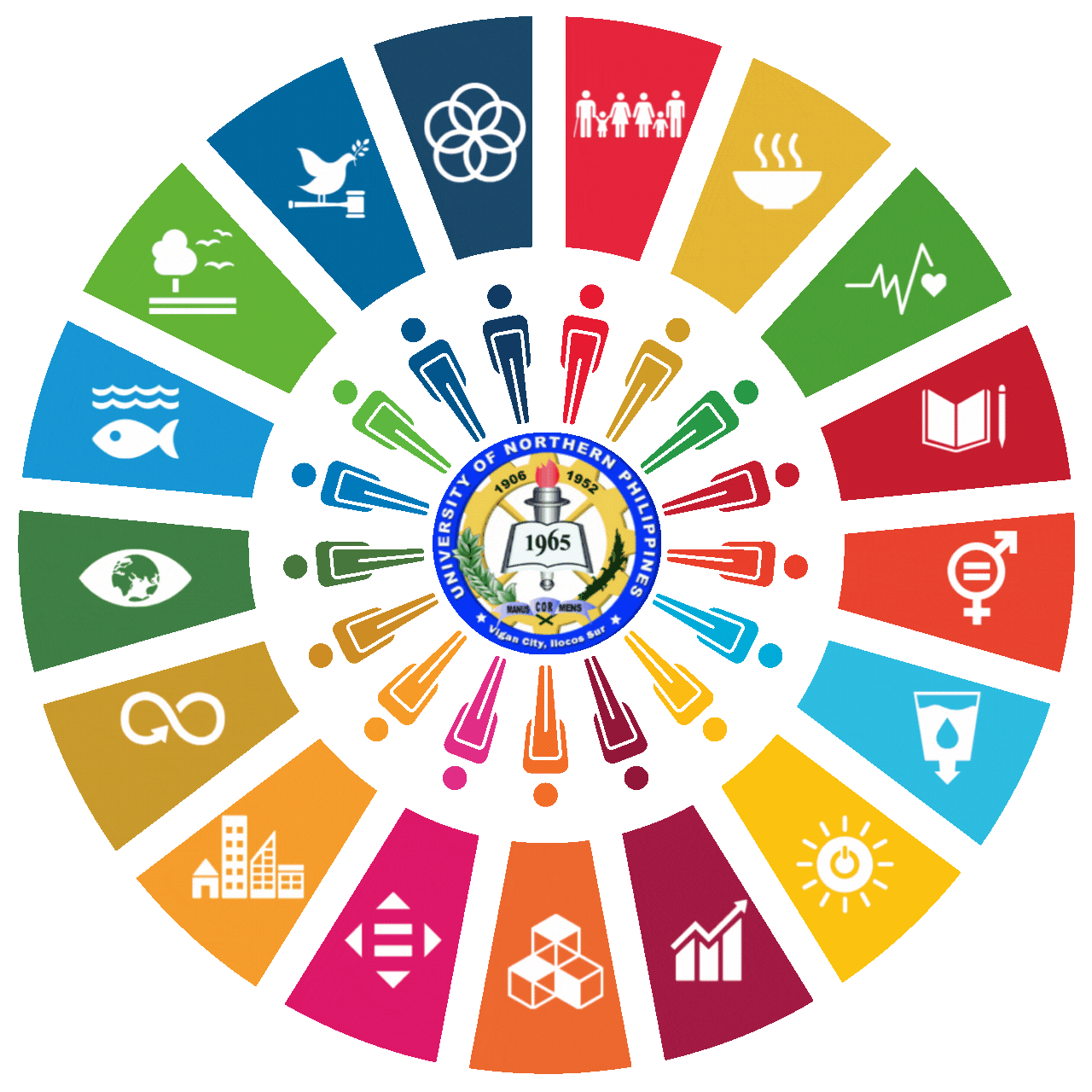
BRIEFER

SDG 2 - ZERO HUNGER
The University of Northern Philippines (UNP) displays a broad approach to achieving Zero Hunger through several initiatives that integrate agricultural education, nutritional interventions, and sustainable food production training. UNP addresses food security through direct feeding programs implemented by the College of Medicine in partnership with the Ilocos Sur Medical Society and Rotary Club, which reduce malnutrition in vulnerable communities. The College of Medicine and the Department of Mathematics and Natural Sciences, in collaboration with the Rotary Club of Vigan, conducted a feeding program that provided food and monitored the physical health of nutritionally-challenged elementary school pupils aged 6–11 for over 150 days, directly addressing hunger and malnutrition in children. Through the UNP Hospital's participation in regional gatherings with the National Nutrition Council and the Scaling Up Nutrition Movement Network, the University actively engages in multi-sectoral partnerships to address malnutrition as a key dimension of poverty by improving access to basic health services.
UNP enhances agricultural productivity and food production skills through targeted training programs that empower communities with practical knowledge. The College of Business Administration and Accountancy organized skills training workshops on fish and meat processing, providing individuals with hands-on skills to start small food businesses or find employment in the food industry, thereby increasing the income and productivity of small-scale food producers. The College of Teacher Education's partnership with Bungro-Margaay Elementary School in Cabugao demonstrates sustained community engagement through a multi-phase skills training program on pokpoklo seaweed ice cream production, followed by product labeling and packaging training. The College of Hospitality and Tourism Management organized workshops on making traditional delicacies like puto and bibingka, reviving cultural traditions while providing participants with practical food production skills that promote local food security and create new income sources. Five graduate students from the Master of Arts in Technology and Livelihood Education program successfully passed the National Competency Assessment (NC II) in Agricultural Crops Production, demonstrating UNP's commitment to excellence in agricultural education and the training of highly skilled educators and practitioners who can enhance agricultural productivity.
UNP advances sustainable and resilient agricultural practices through research dissemination and knowledge transfer. The University Research and Development Office's Mushroom Research and Development Center conducted research dissemination in Suyo, Ilocos Sur, sharing innovative findings in mushroom cultivation that help local farmers increase productivity and enhance food security. The University Extension Office collaborated with the College of Business Administration and Accountancy to provide entrepreneurial training, equipping community members with skills to start and manage their own businesses, promoting sustainable economic growth and food security. Students from the BS Entrepreneurship program won the ONE Ilocos Sur Spring Development Grant for their development project, contributing to economic growth and local food systems essential for achieving zero hunger. In partnership with the Ilocos Sur Provincial Police Office, UNP provided skills training to residents of Sta. Lucia, empowering individuals with vocational skills that enhance their economic opportunities and enable them to better afford food and other necessities for their families.
UNP recognizes that addressing hunger requires building strong educational foundations that enable communities to understand and implement agricultural science and technology. The Department of Mathematics and Natural Sciences launched "ChristMATH Tutorial through Pinoy Games" at an elementary school to enhance the arithmetic skills of struggling pupils, strengthening foundational education that supports long-term food security. Through systematic documentation and monitoring of these diverse initiatives, UNP demonstrates that achieving Zero Hunger requires coordinated efforts across nutrition interventions, agricultural education, sustainable food production, entrepreneurship development, and community empowerment. The University's integrated approach positions it as a vital contributor to food security and sustainable agricultural development in the Ilocos region and beyond.
Read more
URDO-MRDC conducts research dissemination at Suyo

DMNS hosts MaSCIyang Kapaskuhan at Nagsangalan



















